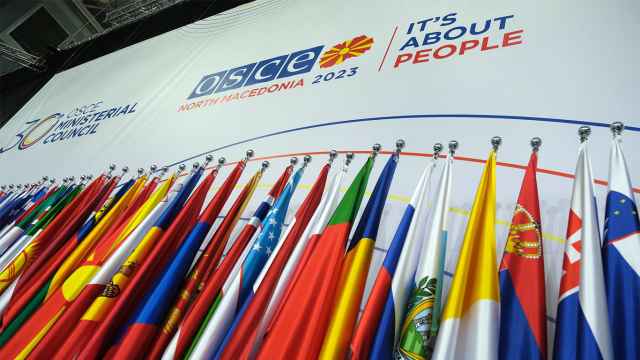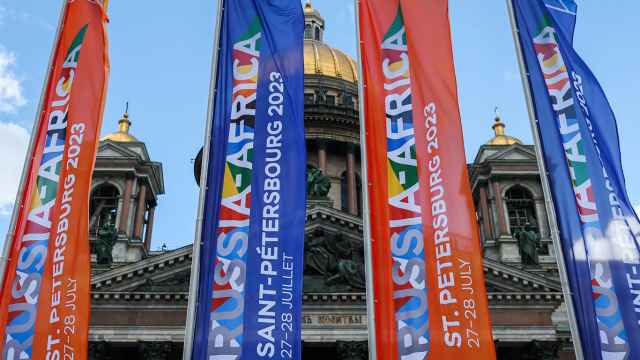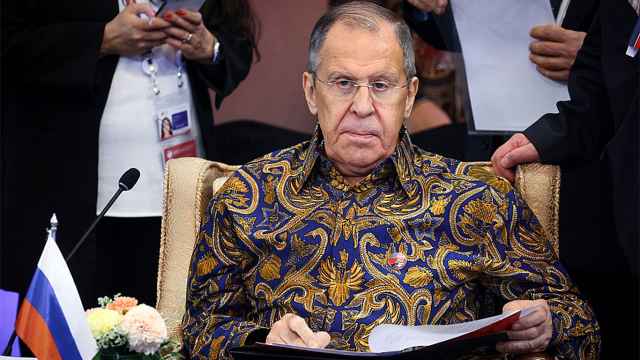Last week, while Russian missiles rained down on Ukrainian cities, the Kremlin’s special envoy Kirill Dmitriev landed in Washington with an offer of economic cooperation. To many, this seemed like cognitive dissonance. To me, it felt eerily familiar. Charm the West with trade. Threaten neighbors in the background. Speak diplomacy, practice coercion. That isn’t just hypocrisy, it’s a strategy. It’s the realpolitik we were trained to believe in and to carry out.
Morgenthau. Waltz. Primakov. Mearsheimer.
Morgenthau. Waltz. Primakov. Mearsheimer.
I could recite them in my sleep — just like my grandparents once recited Lenin and Marx.
That was the rhythm of life at MGIMO, Russia’s elite diplomatic academy and my alma mater. Every course, no matter the topic, bowed to the same deities of geopolitical realism. We were soaked in realpolitik as if the Cold War had never ended and trained to act accordingly.
People often ask me why Russian diplomats are so hard to deal with. My answer as an insider of this system is simple: to understand Russian diplomacy, you need to understand how Russian diplomats are made. And that means understanding MGIMO. It is the Hogwarts of the Russian foreign policy elite, the place where the worldview of Russian diplomats is shaped, hammered in and sealed.
Unlike the West, where diplomats are usually brought up on liberal institutionalism — the idea that diplomacy is about cooperation — MGIMO teaches the opposite: offensive realism. Not the nuanced academic kind, but its hardened, ossified version where power is truth, might makes right and "spheres of influence" are gospel.
From day one, we were taught that Russia is and must remain a derzhava — a “great power.” Not just one country among many, but a pole in a multipolar world. A country destined to challenge the West. That belief — fused with resentment, imperial nostalgia and a constant sense of grievance — forms the backbone of Russian diplomacy.
Enter the Primakov Doctrine.
Yevgeny Primakov, a former foreign minister, offered an answer to U.S. unipolarity: a “strategic triangle” of Russia, China and India. This wasn’t diplomacy as dialogue but power-balancing disguised as vision — a blueprint for rivalry. His ideas shaped generations of diplomats who came to see the world as a chessboard of empires.
There was almost no space for alternative ways of thinking at MGIMO.
Liberalism? Mocked. Constructivism? Ignored.
Postcolonialism or feminism? Unthinkable.
MGIMO’s curriculum was Cold War nostalgia meets KGB street smarts meets legal gymnastics. All this is tailor-made for President Vladimir Putin’s worldview. Everything revolved around ponyatiya (understood codes), honor, betrayal and (dis)trust.
At MGIMO, we were taught to cite international law while violating its spirit, to defend norms while dismantling them and to speak of peace while justifying and waging wars. Georgia. Syria. Ukraine. These weren’t deviations. We deployed whichever claim of “Territorial integrity” or “self-determination” suited the day’s talking point. This is Russian anti-normism in action.
Yet, I can’t lie: the technical training was impeccable. Languages, etiquette, international law, treaties and the dates of battles. I still impress my Western colleagues with my knowledge of the Helsinki Accords or marine law. But what we were not taught — ever — was how to engage with this knowledge critically. For me, that came later through Western education and painful conversations with fellow MGIMO alumni. I had so much to unlearn.
That said, most of my classmates weren’t true believers. Some came from poor families in small towns, scraping together money just to make it in Moscow. MGIMO was a ticket to a career, a diplomatic passport and a future. Westerners with strong passports and freedom of movement don’t always get that.
Many MGIMO students didn’t freely choose the system. The system chose some of us: and once you’re in, getting out is nearly impossible. I know for a fact that some tried to change it from within. Most were crushed. Silenced. Scared.
I got out. I rebelled. But I was lucky.
They weren’t. And I don’t blame them.
Still, apart from the true believers in Russia’s unique mission (and yes, there were a few), there were others at MGIMO with Western educations, dual citizenships and family wealth who still chose to serve the system. That’s where I draw the line. They had a choice and stayed. That, I cannot forgive.
Maybe I’m too emotional. Maybe you — Western diplomats and politicians — must be more rational. You have to engage, even now, for the sake of the future. But don’t mistake performance for principle.
This is not just personal reasoning. It’s a warning for Western policymakers. If the West wants to negotiate effectively with the Russian state, it must first understand the psychological architecture of its diplomacy. Dialogue will not succeed on liberal terms — it must be grounded in realism, deterrence, and strategic clarity. You cannot appeal to shared norms when the other side sees norms as tools to be gamed. You cannot assume diplomacy is about trust when the training teaches distrust as doctrine.
Yes, MGIMO breeds a kind of bureaucratic thoughtlessness — what Hannah Arendt once called the “banality of evil.” I’ve seen it. I’m scared of it. But I’ve also seen cracks in the walls. There are people behind those walls, watching, thinking, hoping. Don’t write them all off. Don’t speak only the language of sanctions and ultimatums. Learn to speak their language — not to excuse, but to understand what they are saying. Not to forgive, but to prepare for what comes next. That doesn’t mean becoming a Putinversteher — German shorthand for those who rationalize Putin’s actions under the guise of understanding. It means recognizing the system for what it is and the people inside it for who they actually are and what they might become.
Remember: those of us who made it out are not the rule. We’re the exception. For me, escaping the system cost a career, a stable life and a network of friends. In the end, it cost me my homeland.
People like me walked away from Putin’s diplomatic machine and we can teach the world how to handle it.
A Message from The Moscow Times:
Dear readers,
We are facing unprecedented challenges. Russia's Prosecutor General's Office has designated The Moscow Times as an "undesirable" organization, criminalizing our work and putting our staff at risk of prosecution. This follows our earlier unjust labeling as a "foreign agent."
These actions are direct attempts to silence independent journalism in Russia. The authorities claim our work "discredits the decisions of the Russian leadership." We see things differently: we strive to provide accurate, unbiased reporting on Russia.
We, the journalists of The Moscow Times, refuse to be silenced. But to continue our work, we need your help.
Your support, no matter how small, makes a world of difference. If you can, please support us monthly starting from just $2. It's quick to set up, and every contribution makes a significant impact.
By supporting The Moscow Times, you're defending open, independent journalism in the face of repression. Thank you for standing with us.
Remind me later.








